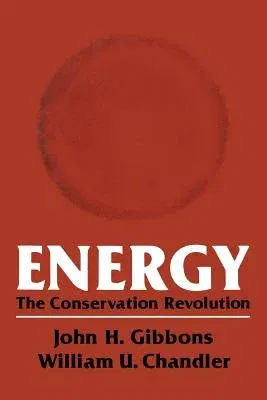John Gibbons
(Author)Energy: The Conservation Revolution (Softcover Reprint of the Original 1st 1981)Paperback - Softcover Reprint of the Original 1st 1981, 28 December 2012

Qty
1
Turbo
Ships in 2 - 3 days
In Stock
Free Delivery
Cash on Delivery
15 Days
Free Returns
Secure Checkout
Part of Series
Modern Perspectives in Energy
Print Length
258 pages
Language
English
Publisher
Springer
Date Published
28 Dec 2012
ISBN-10
1461592119
ISBN-13
9781461592112
Description
Product Details
Author:
Book Edition:
Softcover Reprint of the Original 1st 1981
Book Format:
Paperback
Country of Origin:
NL
Date Published:
28 December 2012
Dimensions:
22.86 x
15.24 x
1.47 cm
ISBN-10:
1461592119
ISBN-13:
9781461592112
Language:
English
Location:
New York, NY
Pages:
258
Publisher:
Weight:
371.95 gm

